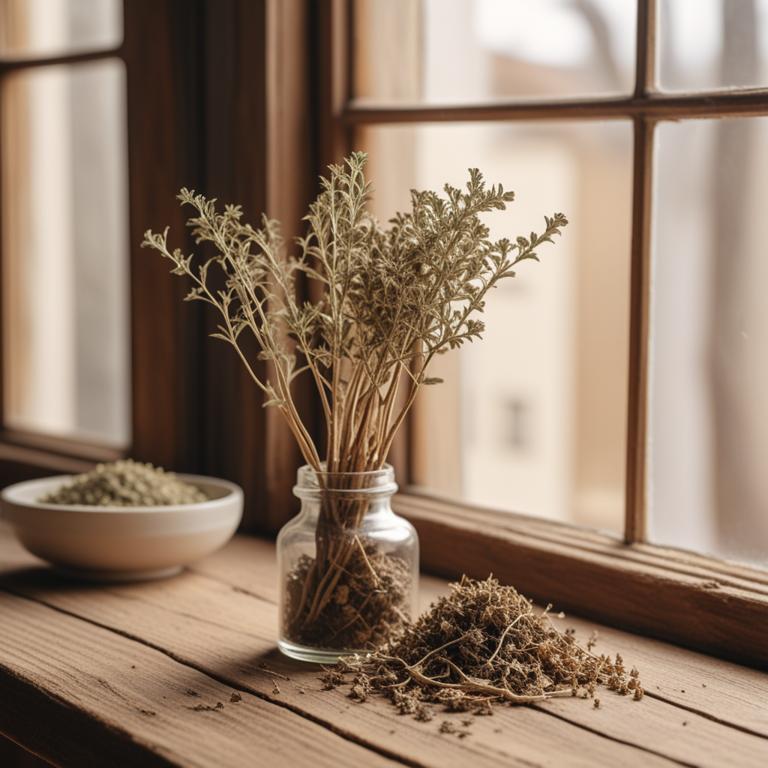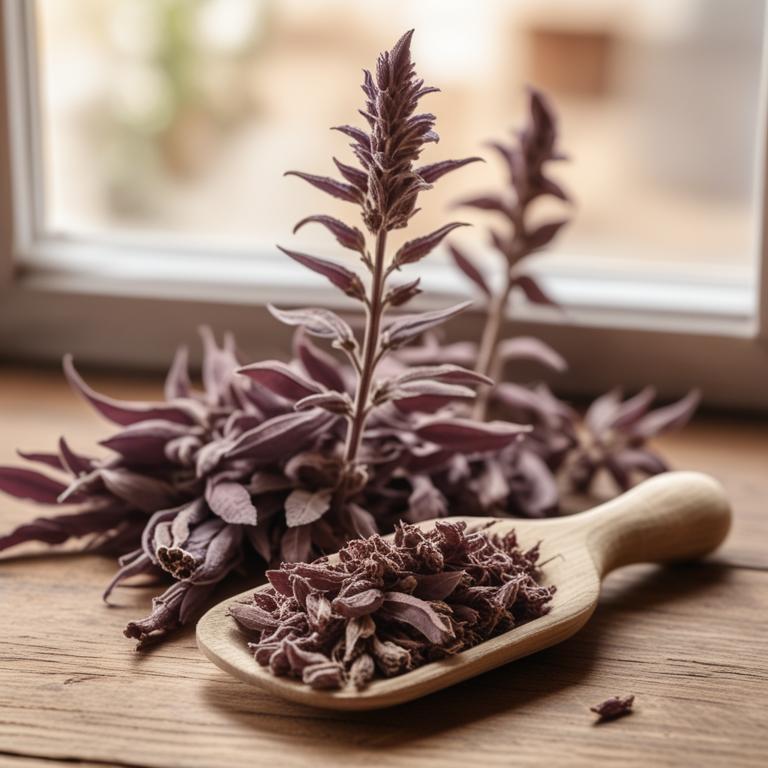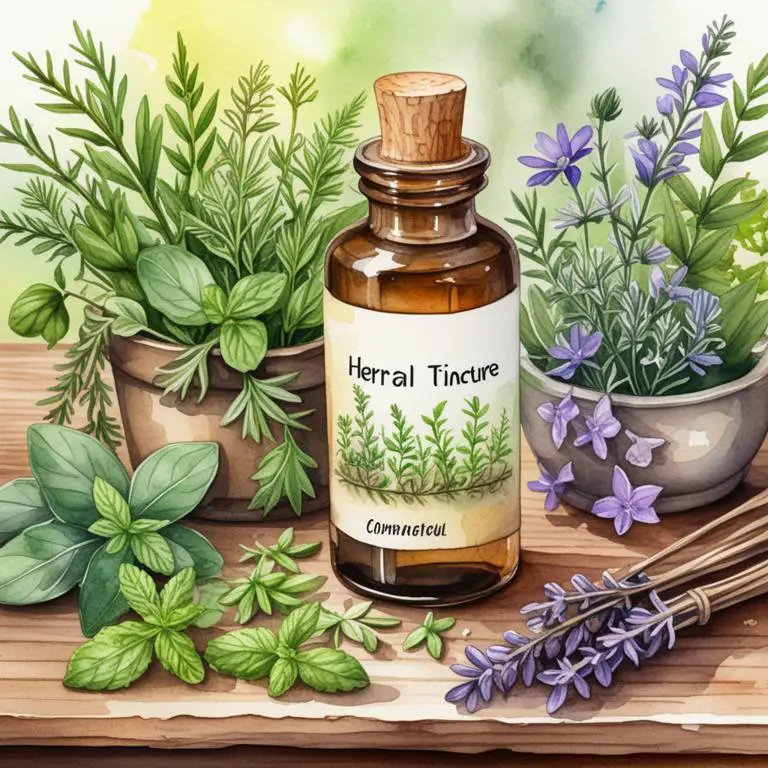Updated: Nov 30, 2024
7 Herbal Tinctures For Indigestion
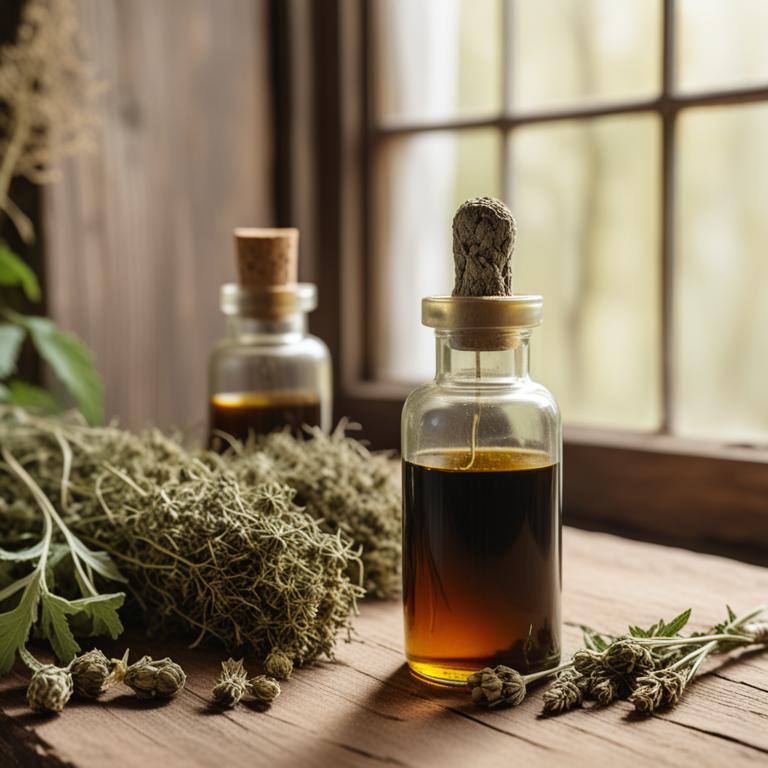
Herbal tinctures have been used for centuries to soothe indigestion and other digestive issues.
One reason they work is because they're easily absorbed into the bloodstream, providing quick relief. When it comes to indigestion, herbal teas can be especially helpful because they calm the stomach and reduce inflammation. Take, for example, Zingiber officinale, also known as ginger. It's a natural anti-inflammatory that helps ease nausea and stomach discomfort. Some people take it to help with morning sickness during pregnancy, while others use it to calm an upset stomach after eating spicy food.
Glycyrrhiza glabra, or licorice root, is another herb that's been used to soothe indigestion. It has anti-inflammatory properties and can help protect the stomach lining from acid damage. Foeniculum vulgare, or fennel, is also a popular choice for indigestion relief. Its oils have a calming effect on the stomach and can help reduce gas and bloating. Many people find that drinking fennel tea after meals helps them feel more comfortable and reduces discomfort. Using herbal teas for indigestion can be a game-changer for people who experience frequent or severe digestive issues.
They're a natural, non-habit-forming way to find relief and get back to enjoying your favorite foods without worrying about how your body will react.
This article explains in detail what are the best herbal teas for indigestion and wh.
Also, you may be interested in...
Today Free Bonus!
The Ultimate Herb Drying Checklist
(For Long-Lasting Powerful Medicinal Effect)
How to easily dry herbs that don't mold and that keep their strong medicinal power for more than 1 year.
Table of Contents
1. Zingiber officinale

Zingiber officinale tinctures contains zingiberene, bisabolol, and shogaol, which are biologically active constituents that contribute to its effectiveness in treating indigestion.
These compounds have anti-inflammatory properties, which help reduce swelling and ease digestive discomfort. Shogaol, in particular, has been shown to increase the production of digestive enzymes, improving digestion and reducing symptoms of indigestion. Zingiber officinale tinctures also have a relaxing effect on the muscles in the digestive tract, allowing for smoother digestion and relief from discomfort.
By promoting digestion and reducing inflammation, zingiber officinale tinctures provide a natural solution for alleviating indigestion symptoms.
- Gather 1 cup of fresh Zingiber officinale (ginger) roots and 2 cups of vodka.
- Chop the ginger roots into small pieces and place them in a clean glass jar.
- Pour the vodka over the ginger, making sure they are completely covered.
- Seal the jar and store it in a cool, dark place for 2 weeks, shaking the jar every day.
- Strain the liquid through a cheesecloth or a coffee filter into another clean glass bottle, discarding the ginger solids.
2. Glycyrrhiza glabra

Glycyrrhiza glabra tinctures contains glycyrrhizin, a triterpenoid saponin, and other bioactive constituents like flavonoids and phenolic acids.
Glycyrrhizin works by inhibiting the enzyme 11-beta-hydroxysteroid dehydrogenase, which is involved in the production of stomach acid. This leads to reduced acid production, relieving symptoms of indigestion and heartburn. Glycyrrhizin also has anti-inflammatory properties, which can help soothe the stomach lining and reduce inflammation caused by acid reflux.
Additionally, glycyrrhizin helps to relax the muscles in the stomach, allowing food to pass through more easily and reducing discomfort.
- Gather 1 cup of dried Glycyrrhiza glabra roots and 2 cups of 80% ethanol (vodka or rum work too).
- Combine the roots and ethanol in a clean glass jar. Make sure the roots are fully covered by the liquid.
- Seal the jar and let it sit in a cool, dark place for 2-3 weeks, shaking the jar every day.
- Strain the liquid through a cheesecloth or coffee filter into another clean glass jar. Discard the solids.
- Store the tincture in a cool, dark place and use 20-30 drops in water or tea as needed for indigestion relief.
3. Foeniculum vulgare
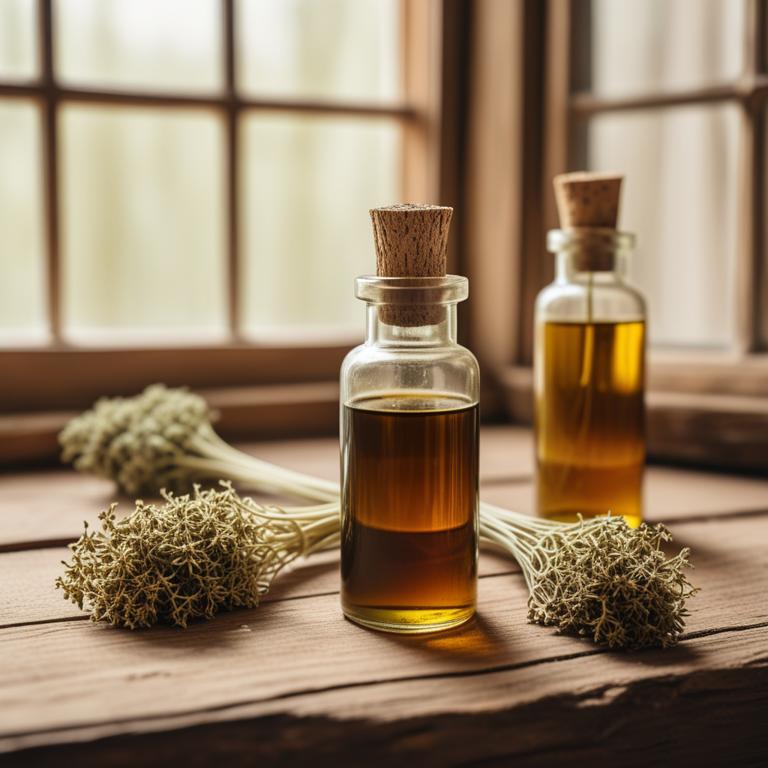
Foeniculum vulgare tinctures contains the bioactive constituents limonene, anethole, and fenchone, which are responsible for its digestive benefits.
Limonene has a carminative effect, helping to reduce gas and alleviate indigestion symptoms. Anethole and fenchone have anti-inflammatory and antispasmodic properties, which can soothe the digestive tract and relax muscles that may be contributing to indigestion. These compounds work together to reduce inflammation, calm digestive upset, and promote the movement of food through the digestive system.
As a result, Foeniculum vulgare tinctures can provide relief from indigestion and related symptoms.
- Gather 1 cup of fresh Foeniculum vulgare leaves and 2 cups of 80% vodka.
- Chop the leaves finely and place them in a clean glass jar.
- Add 2 cups of vodka to the jar, making sure the leaves are covered.
- Seal the jar and store it in a cool, dark place for 2-3 weeks, shaking the jar daily.
- Strain the liquid through a cheesecloth or coffee filter into another clean glass bottle. Discard the solids.
4. Curcuma longa

Curcuma longa tinctures contains the bioactive constituents curcumin, demethoxycurcumin, and bisdemethoxycurcumin, which are responsible for its therapeutic properties.
These compounds have potent anti-inflammatory and antioxidant effects, which help to soothe the digestive system and reduce inflammation in the stomach and intestines. The curcumin in Curcuma longa tinctures has been shown to inhibit the production of pro-inflammatory enzymes and cytokines, which contribute to indigestion and discomfort. Additionally, curcumin has a protective effect on the stomach lining, preventing acid damage and promoting healing.
By reducing inflammation and protecting the stomach lining, Curcuma longa tinctures can help to alleviate symptoms of indigestion and promote digestive health.
- Gather 1 cup of fresh Curcuma longa roots and 2 cups of 80% vodka or high-proof spirits.
- Chop the Curcuma longa roots into small pieces and place them in a clean glass jar.
- Pour the vodka or spirits over the chopped Curcuma longa roots, making sure they are completely covered.
- Seal the jar and store it in a cool, dark place for 2-3 weeks, shaking the jar daily.
- Strain the liquid through a cheesecloth or a coffee filter into another clean glass bottle, discarding the solids.
5. Cinchona officinalis

Cinchona officinalis tinctures contains quinine, a compound that helps relax the muscles in the digestive tract and reduce inflammation.
Quinine also has a natural antispasmodic effect, which eases cramps and spasms in the stomach that can cause indigestion. The alkaloids in Cinchona officinalis, such as quinidine and quinicine, have a soothing effect on the digestive system and help to calm irritation in the stomach lining. By reducing inflammation and soothing the stomach, Cinchona officinalis tinctures can help alleviate symptoms of indigestion, such as bloating and discomfort.
This helps the digestive system to function more normally and reduce the severity of indigestion symptoms.
- Gather 1 cup of dried Cinchona officinalis bark, 2 cups of vodka, and a clean glass jar.
- Combine the dried bark and vodka in the glass jar. Make sure the bark is fully covered by the vodka.
- Seal the jar and let it sit in a cool, dark place for 2-3 weeks, shaking the jar every day.
- After 2-3 weeks, strain the liquid through a cheesecloth or a coffee filter into another clean glass jar, discarding the solids.
- Store the tincture in the refrigerator and take 10-20 drops, 2-3 times a day, as needed to alleviate indigestion.
6. Ginkgo biloba

Ginkgo biloba tinctures contains flavonoids and terpenoids, two active constituents that help with indigestion.
Flavonoids, specifically quercetin and kaempferol, have anti-inflammatory properties that reduce inflammation in the digestive tract and alleviate digestive discomfort. Terpenoids, like bilobalide, have a soothing effect on the digestive system and improve blood flow to the stomach, which can help with indigestion caused by poor circulation. The antioxidant properties of these compounds also help protect the stomach lining from damage and reduce symptoms of indigestion.
By reducing inflammation and improving blood flow, Ginkgo biloba tinctures can help alleviate indigestion symptoms.
- Gather 1 cup of Ginkgo biloba leaves, 2 cups of vodka, and a glass jar with a lid.
- Add the Ginkgo biloba leaves to the glass jar.
- Pour the vodka over the leaves, making sure they are completely covered.
- Seal the jar and let it sit in a cool, dark place for 2 weeks, shaking the jar every day.
- Strain the liquid through a cheesecloth or a fine-mesh sieve into another glass jar, discarding the solids. Store the tincture in a cool, dark place.
7. Piper nigrum

Piper nigrum tinctures contains a concentrated form of the bioactive constituents found in black pepper, including piperine and piperic acid.
These compounds have anti-inflammatory properties that help to reduce inflammation in the digestive tract, making it easier to digest food and alleviating indigestion symptoms. The antispasmodic properties of piperine also help to relax the muscles in the digestive tract, reducing cramps and spasms that can contribute to indigestion. Additionally, piperine has been shown to increase the bioavailability of digestive enzymes, which helps the body to break down and absorb nutrients more efficiently.
By addressing the underlying causes of indigestion, piper nigrum tinctures can help to provide relief and promote a healthy digestive system.
- Get 1 cup of 80-proof vodka and 1/4 cup of dried Piper nigrum (black pepper).
- Combine vodka and dried black pepper in a clean glass jar.
- Steep the mixture for 2 weeks in a cool, dark place, shaking the jar every day.
- Strain the liquid through a cheesecloth or a coffee filter into another clean glass jar.
- Store the tincture in a cool, dark place and use 5-10 drops as needed to help with indigestion.
FAQ
Can drinking herbal tea prevent indigestion from forming?
Drinking herbal tea may help prevent indigestion.
Certain herbs like peppermint and ginger have natural soothing properties that can calm the stomach and ease digestive issues.
These teas can also help reduce inflammation and relax the muscles in the digestive tract, which can alleviate discomfort and indigestion symptoms.
Is it safe to consume herbal teas for indigestion every day?
Herbal teas for indigestion can be a helpful solution, but drinking them every day might not be suitable for everyone.
Some herbs, like peppermint and ginger, can cause stomach upset if consumed in large amounts or for extended periods.
Start with a small dose and see how your body reacts.
How long does it take for herbal teas to show results in indigestion?
Herbal teas can start to help with indigestion within a few hours after drinking them.
Some people notice a difference in their discomfort and bloating after just one cup.
However, it may take a few days of regular consumption to see more noticeable results and to experience the full benefits of the herbal tea.
What time of day is best to drink herbal tea for indigestion?
After a meal, when your body is digesting food, is a good time to drink herbal tea for indigestion.
Drinking it then can help calm your stomach and ease discomfort.
It's especially helpful if you have a sensitive stomach or are prone to heartburn and bloating after eating.
Related Articles
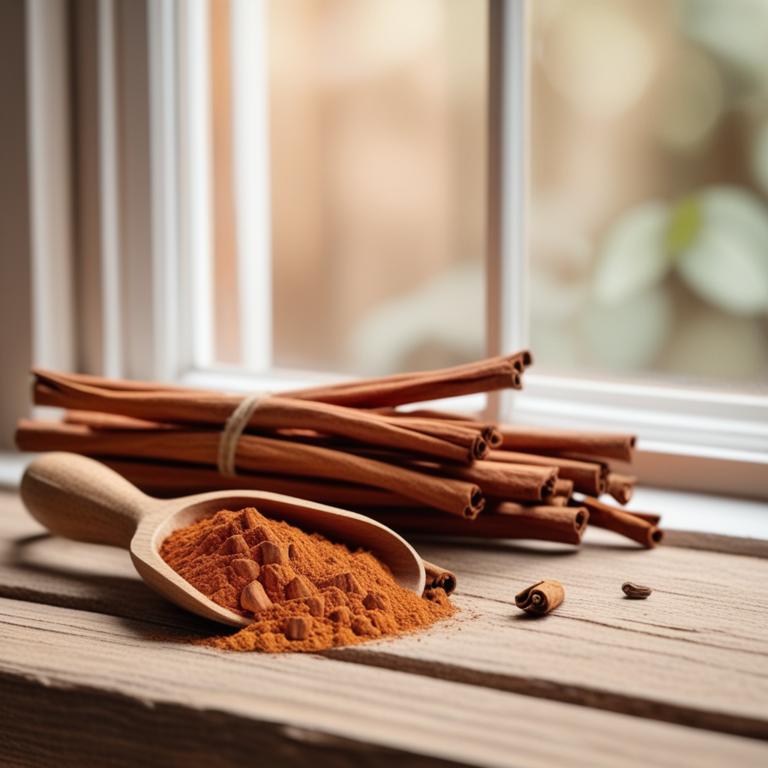
Sour Taste in Mouth: A Guide to Medicinal Herbs and Preparations
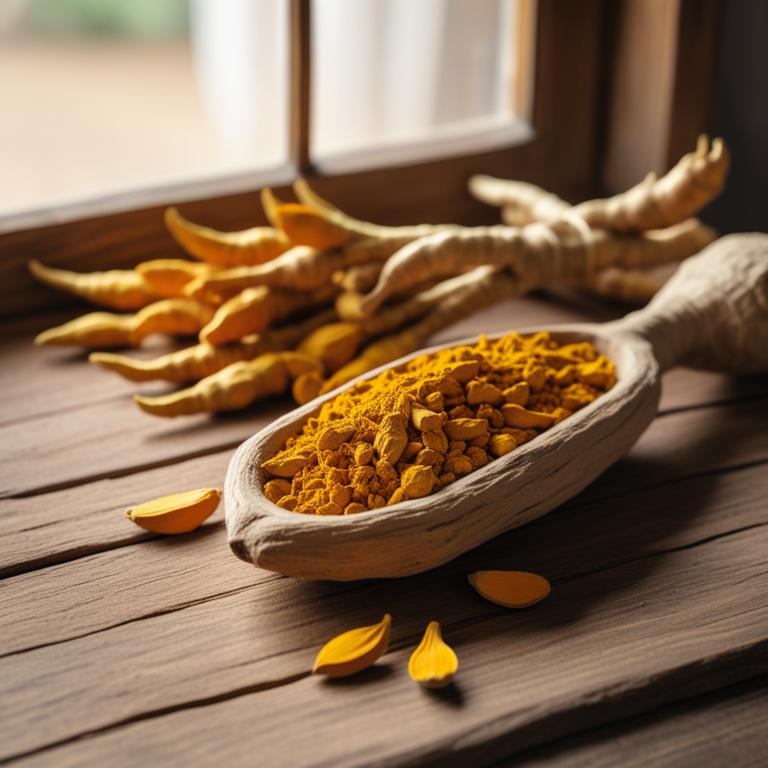
Causes and Herbal Treatments for Upper Abdominal Pain
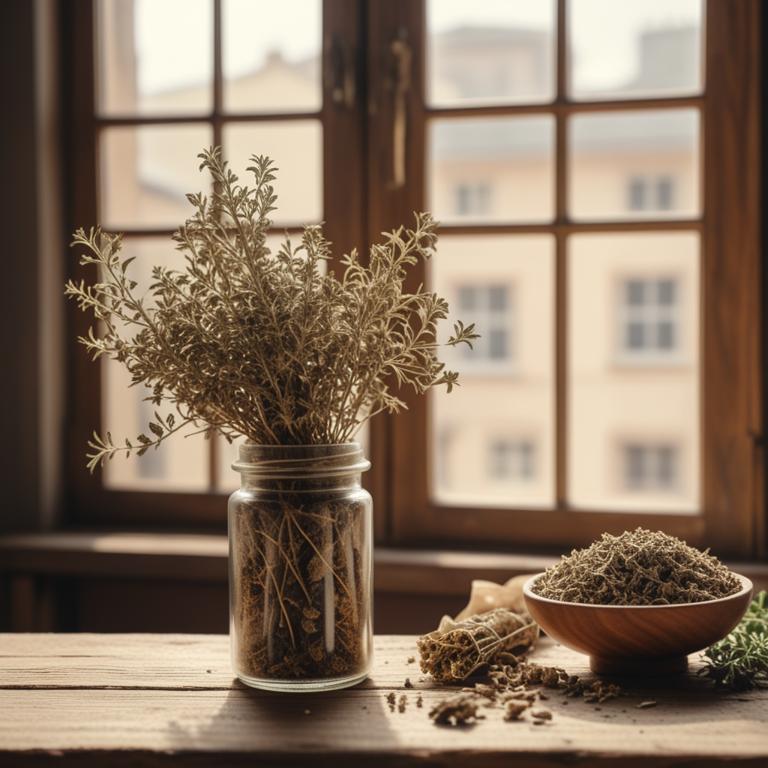
The Causes and Herbal Preparations of Stomach Discomfort
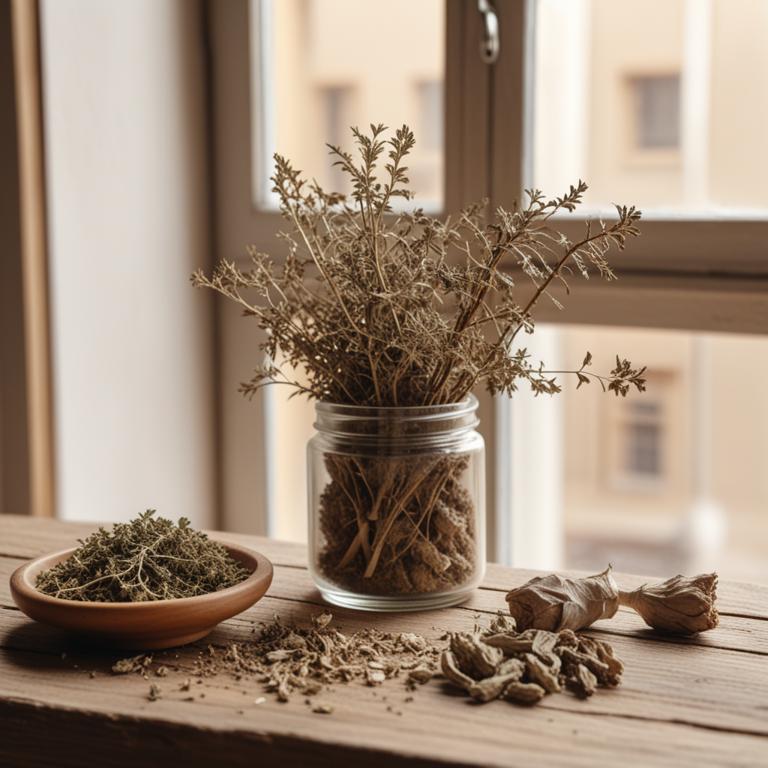
Herbal Relief for Upset Stomach: Causes, Medicinal Herbs, and Preparations
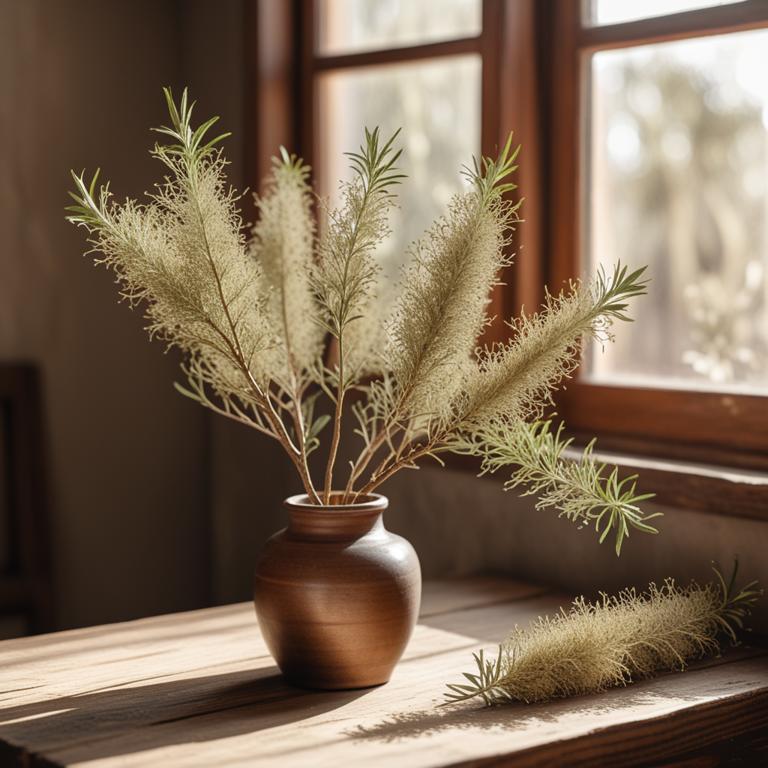
Cavities Causes and Natural Treatment Options with Medicinal Herbs and Herbal Preparations
